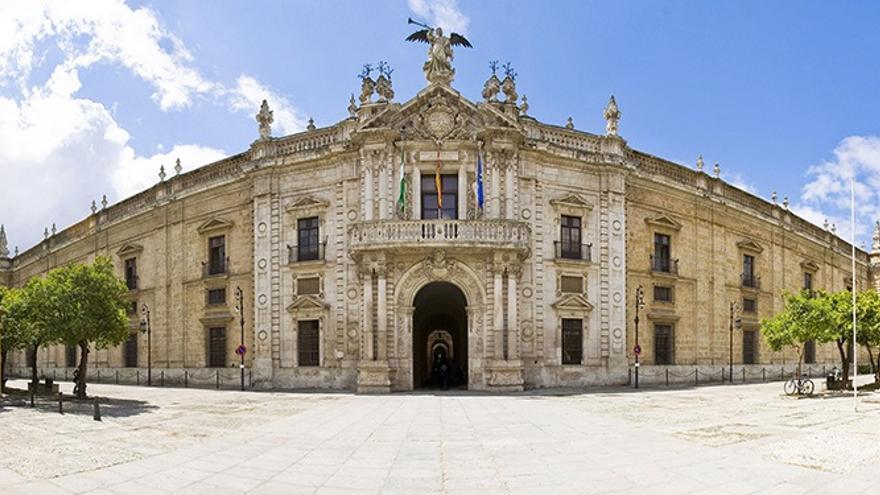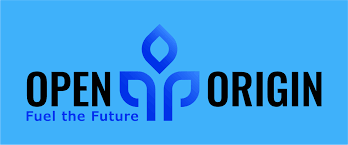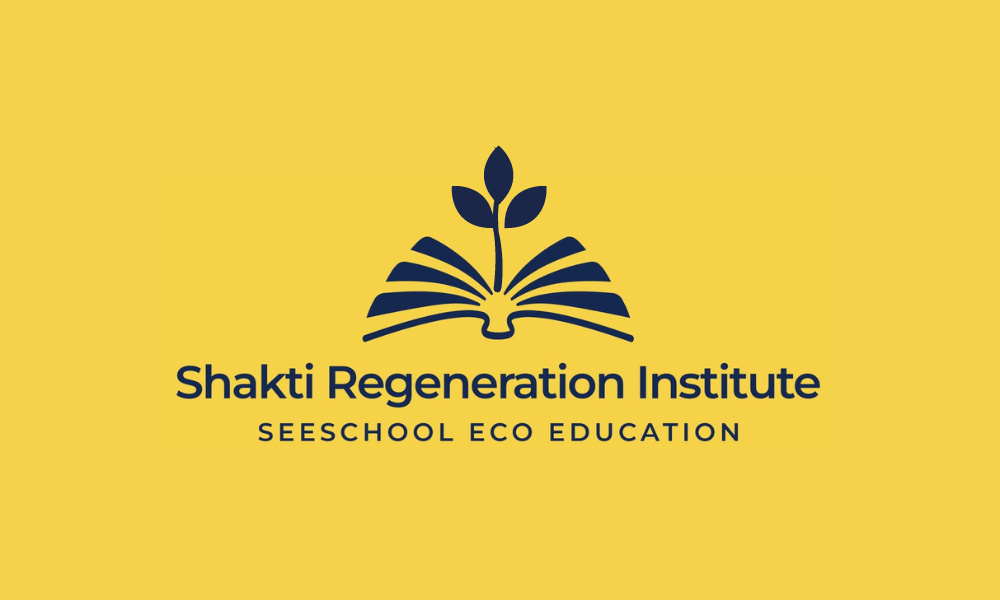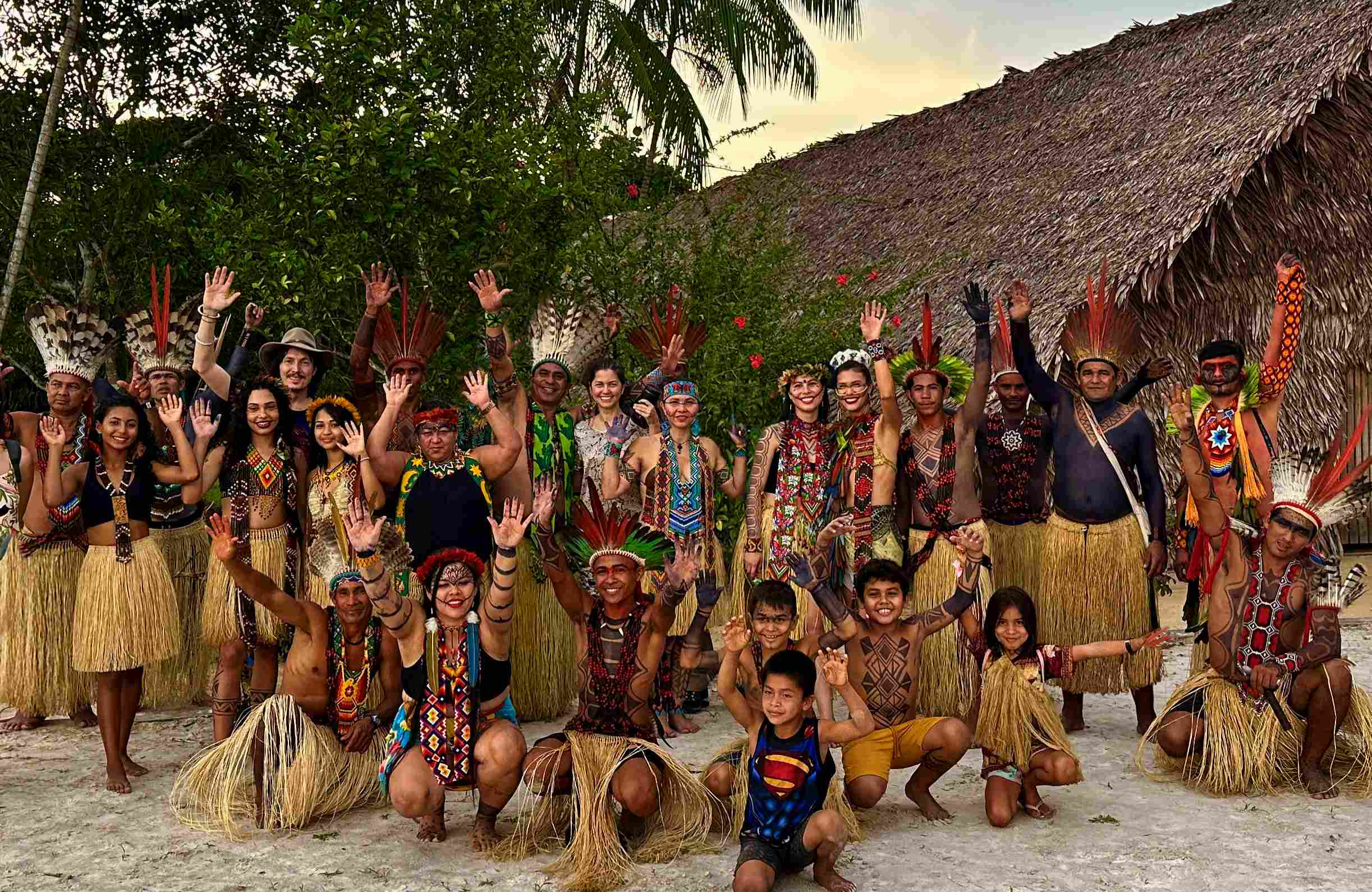
Green Futures – Innovation and Indigenous Economic Systems Change
Please scroll down for Agenda and Speakers
Organizer: Indrani Pal-Chaudhuri, Green Transition, Innovation and Indigeneity Platform (GTIIP) The Regeneration Generation and Shakti Regeneration Institute
Purpose
This session explores how innovation—driven by radical collaboration, green energy, and nature-based systems, all inspired by indigenous and ancestral wisdom —can catalyze systemic transformation toward ecosystem regeneration and scale the green transition. It moves beyond extractive models of short-term gain to uplift frameworks rooted in relational governance, shared responsibility, and ecological stewardship—aligning finance and technology with the intelligence of Earth’s living systems.
Context
We face a cascading polycrisis: climate disruption, biodiversity collapse, inequality, and ecological underinvestment. The Amazon rainforest, nearing an irreversible tipping point, symbolizes the urgency. These crises demand systems change: shifting from siloed, extractive approaches to integrated, regenerative strategies. A key lever is the economic valuing of bio-cultural regeneration—recognizing ecosystems and communities as investible assets to protect and regenerate life.
Indigenous peoples, who steward over 80% of global biodiversity, offer governance rooted in reciprocity and intergenerational care. Paired with regenerative energy, sustainable off-grid AI, and circular economies, these models offer a holistic, scalable response.
Key Focus Areas
- Systems Change for Regeneration
- Community-Centered Innovation
- Responsibility Over Reward
- Economic Valuing of Nature
- Indigenous Governance and Knowledge
- Sustainable Off-Grid AI & Energy Infrastructure
Format
- Ceremonial Opening & Land Acknowledgment
- Keynote Dialogues
- Panel I: Financing Nature & Biocultural Economies
- Panel II: Indigenous Innovation & Off-Grid Infrastructure
- Roundtables & Visioning Workshops
- Closing Commitments & Policy Recommendations
Expected Outcomes
- FfD4-aligned policy and finance frameworks for Indigenous-led regeneration
- Models for valuing nature and integrating circular, local governance
- Strategies for sustainable off-grid AI and energy infrastructure
- Partnerships to scale Indigenous-led protection of critical ecosystems
DRAFT AGENDA
10:00–10:10 AM | Opening Remarks & Moderator
Indrani Pal-Chaudhuri –Founder, Open Origin & Executive Director, Shakti Regeneration Institute
- Vision for regenerative energy, ecosystems, and economics
- From extractive models to biocultural solutions
10:10–10:30 AM | Keynote Dialogues: Voices of Ancestry and Innovation
• Mere Takoko – Maori leader, CEO of the Pacific Whale Fund and Moananui Sanctuary Trust
- Hindou Oumarou Ibrahim – President, Indigenous Women & Peoples Association of Chad; Co-Chair, International Indigenous Peoples Forum on Climate Change
- Gwen Jones– Agroecological entrepreneur and co-founder, Nzatu Food Group; Advisor, The World Food Bank & RESOLVE.ngo
- Johan Swinnen – Director General, International Food Policy Research Institute (IFPRI); Vice Chair, Global Research Consortium on Economic Structural Transformation; Commissioner, Food Systems Economics Commission
Themes: Sacred stewardship, sovereignty, food security, and Indigenous pathways to resilienceThemes: Sacred stewardship, sovereignty, and Indigenous pathways to resilience
10:30–11:10 AM | Catalysts of Change: Financing the Future
Panelists:
- Joost Rijswijk – Managing Partner, Cornerstone Capital
- Kristie Wilson-de Groot – Climate & Nature @ Ingka Group / IKEA
- Spyros Poulios – Managing Partner, Brace VC; investing in climate tech and resilient economies
- Mary Ann Thompson-Frenk – Co-founder, The Memnosyne Institute and UTF Holdings; Civic Pioneer Award recipient
- Kalu K. Ugwuomo, Jr. – Co-Founder, UTF Holdings and Obsidian Investment Partners
Focus:
- Structuring regenerative capital
- Scaling climate finance via Indigenous and community-based models
- Mobilizing media, markets, and mentorship for mindset shifts
11:10–11:35 AM | Future Frameworks Roundtable
Participants:
- Parul Punjabi Jagdish – Co-Steward, AIME Indigenous-led global systems-change initiative (52+ countries)
- Astrid Tuuli Grace Determan – Teen Climate Leader; Founder, EPIC-Animals & Arctic Angeles
- Eugenia Carrara – Director, Capital for Climate Brazil; Founder, Katalyzer
- GK Reid – Chief Communications Officer, Open Origin, fueling the future, and producer of the upcoming Regeneration Generation.
- Dr. Eric Montgomery – African anthropologist and peace scholar
- Melissa Lahti – Executive Producer, New Moon Films (Academy Award-winning)
Objective:
- Propose policy recommendations for integrating Indigenous-led finance, youth movements, and cultural intelligence into global investment mechanisms
11:35–11:55 AM | Synthesis & Interactive Dialogue
- Audience Q&A and policy co-creation
- Highlights from breakout insights
11:55–12:30 PM | Closing Circle: A Call to Regenerate
Reflections by youth, elders, investors, and movement stewards
- Final invitation to join the Green Bio-Cultural Bond and Energy Catalyst Cities Consortium
Core Message
To meet the polycrisis, we must transform how we value nature, who we empower to co-lead, and how we finance the systems that sustain life. The future lies in relationship, not extraction—and in listening to those who have stewarded Earth the longest.
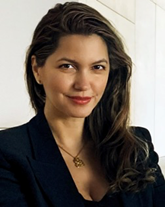
Indrani Pal-Chaudhuri, Convenor
Pal-Chaudhuri is a filmmaker, futurist, founder of Shakti Regeneration Institute and Open Origin fueling the future. Fusing ancestral wisdom with cutting-edge innovation to scale systems change, her work has won over 45 awards including a Tribeca Film Festival Disruptive Innovator Award, two Cannes Gold Lions, shortlisted for an Academy Award, and featured at WEF Davos, COP Climate Summits, the Smithsonian, Lincoln Center, the British Film Institute, and the United Nations, where she was recognized as a Women’s Entrepreneurship Distinguished Fellow. An XPRIZE Rainforest Semifinalist, TEDx speaker, and Rotary International Global Peacemaker, Indrani’s work has inspired global action, earning over two billion media impressions. Raised volunteering with Mother Teresa, and mentored by David Bowie, she lectures at Princeton University on “Mobilizing Millions” and leads The Regeneration Generation, amplifying innovation and Indigenous leadership in the fight for a just and regenerative future.
INVITED SPEAKERS
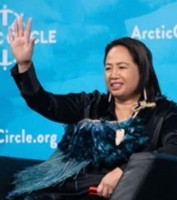
Mere Takoko, Māori leader and conservationist, CEO of the Pacific Whale Fund and Moananui Sanctuary Trust
CEO and co-Founder of the Pacific Whale Fund, Takoko delivers transformative, Indigenous-led impactful actions. With many years’ experience working with Indigenous Peoples on circular economy and environmental initiatives, including clean tech innovations as a former Chief Executive of Divergent Investments. Mere has served on the New Zealand Climate Change Commission and as a Senior Advisor to the New Zealand Cabinet, the Minister for Māori Development and the Māori Affairs Select Committee.
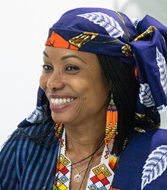
Hindou Oumarou Ibrahim, Co-Chair International Indigenous Peoples Forum on Climate An indigenous woman from Mbororo pastoralist community of Chad, Ibrahim is an advocate for the rights of indigenous peoples and the protection of the environment. She co-chaired the International Indigenous Peoples Forum on Climate Change (IIPFCC) and was coordinator of the indigenous initiative and pavilion for COP21, COP22 and COP23. She was selected to represent civil society at the signing of the 2016 Paris Agreement. Recognized as a National Geographic Explorer, she serves as Senior Indigenous Fellow for Conservation International, won the 2019 Pritzker Emerging Environmental Genius Award and the 2020 Refugee International’s Richard C. Holbrooke Award.

Txai Suruí is an Indigenous leader and activist from the Amazon. Deeply committed to her culture’s ancient practices, she also embraces new technology. By using drones to protect ancestral forests and social media to amplify her message globally, she’s securing land rights and creating policy changes.
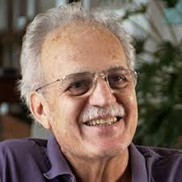
Carlos Nobre, Nobel Prize IPCC Scientist
Dr. Nobre is a leading Earth System scientist from Brazil. A graduate of MIT, Program Scientist of the Large-Scale Biosphere-Atmosphere Experiment (LBA), National Secretary of R&D of Ministry of Science and Technology of Brazil and President of the Federal Agency for Post-Graduate Education (CAPES). He authored the IPCC AR4, on the Savanization of the Amazon, which was awarded the Nobel Peace Prize in 2007. He created the Amazon Third Way-Amazonia 4.0 Initiative, a new development paradigm based on a biodiversity-driven bio-economy utilizing modern technologies of the 4th Industrial Revolution.
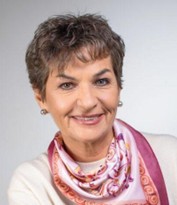
Christiana Figueres, Earthshot, Ex-UNFCCC
The first Latin American to receive a DBE, as Executive Secretary of the UN Framework Convention on Climate Change (UNFCCC) 2010-2016, Figueres directed 5 successful COPs and the Paris Agreement of 2015. She brought together governments, corporations, activists, institutions, communities, think tanks, technologists, and parliamentarians, to deliver unprecedented climate change agreements. Co-founder of Global Optimism, co-host “Outrage & Optimism” and co-author “The Future We Choose: Surviving the Climate Crisis”. A member of the B Team and a Board member of ACCIONA and ACCIONA Energía. She is Chair of The Earthshot Prize.
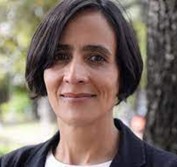
Susana Muhamad, President of COP16, Minister of Environment Colombia
Muhamad is a well-known environmentalist and the Minister of Environment and Sustainable Development of Colombia. Prior, she was Secretary of the Environment, Secretary General of the Mayor’s Office, Councilor of Bogotá, and Sustainable Development Consultant for Shell Global Solutions International in The Hague. Muhamad is consolidating Colombia as a world power of life, through protection of environmental defenders and the fight against deforestation in the Amazon region.
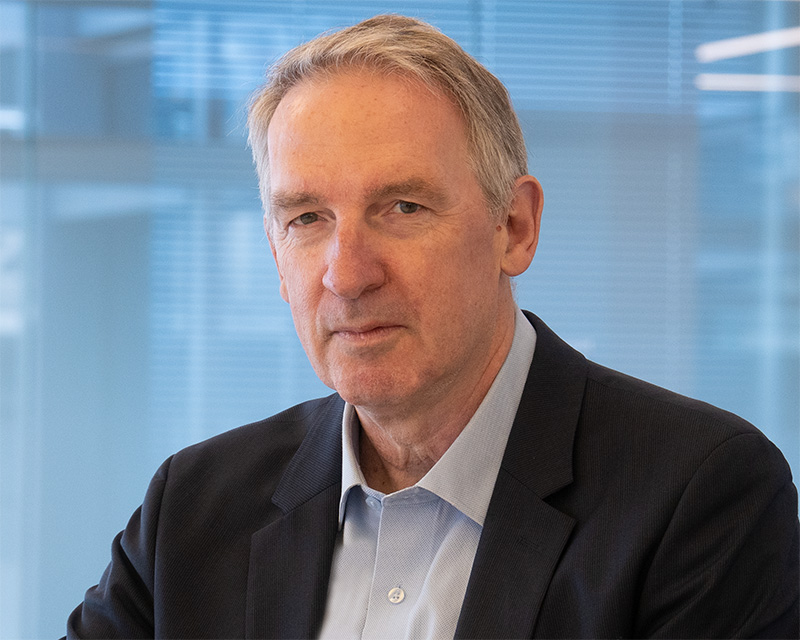
Johan Swinnen, Director General, IFPRI
Johan has served as the Director general of the International Food Policy Research Institute (IFPRI) since January 2020. He is Vice Chair of the Global Research Consortium on Economic Structural Transformation Steering Committee; Commissioner in the Food Systems Economics Commission; Governing Board Member of the World Agriculture Forum; Representative in the High-Level Executive Committee of the IPC; and a member of the Champions 12.3 Leadership Group to Reduce Food Loss and Waste (SDG Target 12.3) and the Friends of the Alternative Proteins Steering Group. Prior to joining IFPRI, Dr. Swinnen was professor of economics and Director of the LICOS Centre for Institutions and Economic Performance at KU Leuven (Belgium) and Senior Research Fellow at the Centre for European Policy Studies in Brussels.

Joost Rijswijk – Global Wealth Strategist and Institutional Advisor
Joost Rijswijk is a seasoned wealth manager with over 30 years of international experience advising high-net-worth individuals, families, and entrepreneurs on building, preserving, and strategically structuring wealth across generations. As Managing Partner of FINMA-regulated Cornerstone Capital AG in Switzerland, Joost specializes in innovative financial solutions with a focus on impact-driven investments.
A passionate advocate for entrepreneurs shaping a better world, Joost supports pioneering ventures such as Quorium (tokenizing in-ground gold reserves), Kabena Group (green energy infrastructure across Africa), and Sparissimo (democratizing passive income opportunities). He also serves as an Ambassador of the Swiss Chamber of Commerce in the Netherlands.
Joost previously held senior roles in private banking at leading institutions including ING Bank, Julius Baer, J. Safra Sarasin, and Morgan Stanley, earning a reputation as a trusted advisor known for integrity, discretion, and long-term vision.

Gwen Jones – Agroecological entrepreneur, co-founder Nzatu Food Group, Ila Tribal Council member, Advisor The World Food Bank
Gwen is the co-founder of Nzatu and Chief Partnerships Officer. Over 25 years of global entrepreneurial experience. Advisory board member of the World Food Bank, and Resolve NGO. Namwala Ila Tribal Council member, collaborates with Tribal Chief to sustain social and cultural heritage. Gwen grew up in Zambia, along the banks of the Kafue River. Alongside her sister and business partner, Denise Madiro, Gwen experienced firsthand the immense challenges sub-Saharan African farmers faced every day. Gwen moved to the United States more than 20 years ago and has spent her entire 30+ year career focused on global food security and community development initiatives throughout sub-Saharan Africa. Nzatu is Gwen’s latest initiative. As the climate crisis worsens, rural farmers are at even greater risk. Together, Gwen and Denise decided to do something about–and that’s where Nzatu comes in. Gwen and Denise have a vision that regenerative agriculture can be a nature-based solution, which can and will create value in Africa, for Africa. Her leadership helped foster partnerships with Artcafe, which is roasting coffee beans grown by Nzatu-supported farmers, and Urban Afrique, which is helping bring Nzatu’s products to the U.S. market.

Major General John Olson – US Air Force, NASA, White House (Ret) is a retired Air Force Major General with 36 years of total service that includes serving as the Space Force Chief of Space Operations MA and first ever Dept of the Air Force Chief Data and AI Officer, and prior to that standing up the 16th Air Force Cyber and Information Warfare. He spent a decade at NASA as an SES and served as the White House OSTP Assistant Director for Space and Aeronautics for 2 years, followed by 11 years in public and private industry. He’s a CEO, Founder, Chairman, and current Board Director for 5 companies plus a Defense Innovation Unit Special Government Employee civilian.
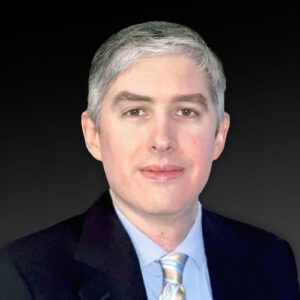
Wesley Powell, Founder & Chief Executive Officer, Open Origin
Wesley is a veteran management, process optimization and technology expert with experience in nearly every vertical as a result of over 25 years of entrepreneurship. He has founded multiple companies in distribution, AI, event production and industrial real estate development. He has an extensive clientele encompassing banking, manufacturing, automotive, telecommunication and government agencies. Wesley’s roles with Deutsche Bank, Verizon Wireless, Deloitte, Mycroft, The World Bank and Morgan Stanley, underscores his immense versatility and ability to lead Salinas Piros.Warm regards,
Michele Sofisti is the CEO and partner of Sofos Management and a strategic partner at NZATU.com, where he champions regenerative agriculture and wildlife conservation across South Africa and Zambia. A seasoned luxury industry executive turned environmental advocate, his career spans leadership roles at Ferrari, Omega, Swatch, and Gucci. A trained geologist, Michele has brought his passion for the natural world into global conservation efforts—serving on the advisory board of the National Geographic Society in Washington and the board of the Global Conservation Corps in South Africa. He is the author of From the Moon to Rhinos, a personal chronicle of transformation—from boardrooms to the frontlines of nature preservation, dedicated to protecting endangered species, forests, and oceans.

Ingmar Rentzhog, CEO and founder of WeDontHavetime.org – the world’s largest social network for climate action
He is a renowned Swedish climate communicator, serial entrepreneur, and founder and CEO of We Don’t Have Time—the world’s largest social media platform for climate action. Dubbed “the Mark Zuckerberg of climate change” by FranceTV2 and a Climate Reality Leader trained by Al Gore, Rentzhog has been instrumental in mobilizing global awareness and collective action on the climate crisis. A former financial executive and sustainability strategist, he is a board member of the European Climate Pact and a sought-after speaker at international forums including the United Nations, World Economic Forum, and COP summits. Through disruptive innovation, global partnerships, and digital mobilization, Rentzhog is redefining how millions engage with the climate emergency—amplifying youth voices, science, and solutions to ignite systemic transformation.

Mary Ann Thompson-Frenk, D.D. (h.c.), FRSA, Mary Ann is the co-founder of The Memnosyne Institute, a globally impactful orgnization advancing cultural preservation, environmental sustainability, and humanitarian aid. She led historic efforts including the first treaty in 300 years between the Hopi and Navajo Nations and co-founded FoodSourceDFW, one of the leading food rescue initiatives in the U.S., which has redistributed over $55 million worth of food to families and shelters nationwide. Under her leadership, Memnosyne expanded globally with chapters in Asia, Mexico, and the UK, supporting Indigenous cultural centers and aiding refugee resettlement efforts with GUA Africa. She also spearheaded pandemic-era initiatives such as “Masks For Life,” delivering nearly a quarter-million dollars in PPE to Indigenous communities across North America.

Will Cady, Global Brand Ambassador & founding head of Reddit’s KarmaLab, Emmy Award winner
He is a catalyst at the intersection of culture, creativity, and community. As Reddit’s Global Brand Ambassador and founding head of Creative Strategy, he is in a unique position to listen to the real-time needs and concerns of thousands of media-driven communi-ties today, while predicting tomorrow’s trends for culture. In his role as strategist, Cady has leveraged his uniquely blended approach of creativity and mysticism to counsel business leaders toward impactful, empathetic marketing of power house brands in tech, including Apple, Google, Samsung,T-Mobile, AT&T, and Adobe. He has worked with major household brands such as Toyota, LEGO, McDonald’s, Chipotle, and Coca-Cola. In addi-tion, he has consulted with entertainment leaders at Netflix, Disney, Amazon Studios, Paramount,and more. Cady has appeared on stage in front of thousands at SXSW, the Consumer ElectronicsShow, the Cannes Lions International Festival ofCreativity, and The Gathering. Will’s work fuses intuition and impact, bridging digital culture and the spiritual, as Mystic in Residence for Aniwa, has one unwavering purpose: to remind us all that the future of creativity is human at its core. In 2020, he was named in Adweek’s “Top 50” 2020, for tech, media,and marketing.

José Urutau Guajajara is a Guajajara linguist, educator, and Indigenous rights leader based in Rio de Janeiro. He earned his master’s in linguistics from UERJ following doctoral studies there, and works as a researcher at the Museu Nacional–UFRJ and professor of Indigenous language and culture at FAETEC‑ISERJ. A native Ze’egté speaker, he co‑founded Aldeia Marak’anà (2006) and now leads urban Indigenous community initiatives at CESAC and Marak’anà, where he champions language revitalization, Indigenous autonomy, and the creation of an Indigenous “nano‑university.”

Kunal Sood is a visionary impact entrepreneur and award‑winning disruptive innovator whose mission is nothing short of transforming the lives of a billion people. As the founder of We The Planet, X Fellows, and NOVUS, he bridges Fortune 500s, nonprofits, art, science, and UN ambassadors—curating immersive global campaigns like #OperationHOPE, #SDGMoonshots, and #WeHaveADream at platforms ranging from TEDxUNPlaza to the UN General Assembly. A Forbes‑recognized “Icon of Impact” and global movement builder, Kunal has earned prestigious honors including the Tribeca Disruptor Metcalfe Prize, World Innovation Award, and RoundGlass Samsara Lifetime Achievement Award. Holding multiple advanced degrees—MBA (Kellogg), MA in Positive Psychology (UPenn), MSc (UCSF)—and affiliations with Stanford, Columbia, Singularity University, and as a TED Resident, he fuses exponential tech and human empathy to architect a future where purpose drives progress

Jonas Englund Jonas Englund is a global pioneer in sustainable finance, co‑founding and serving as Chief Strategy Officer at GreenBond Advisors since 2019, where he spearheads innovative green bond issuance and strategic capital deployment toward renewable energy and climate‑positive infrastructure. With over 25 years of leadership in investment banking, trading, and capital markets, he was instrumental in bringing green bonds to North American institutional investors in 2011 during his tenure establishing SEB’s US fixed-income operations—the same platform that underwrote the world’s first green bond in 2008. A sought-after keynote speaker and lecturer—opening discussions at Nasdaq, Columbia University, University of Michigan, and Panthera Solutions—Englund blends deep behavioral finance insight with mission-driven strategy to accelerate the market transition to low-carbon economies. His role in co-founding GreenBond Advisors and related holding structures empowers conservative investors to access SDG-aligned outcomes, while active partnerships in solar EPC and advisory showcase his visionary approach to financing the clean-energy revolution.

Kalu Ugwuomo, Jr Co-Founder, UTF Holdings LLC Kalu brings over 15 years of experience in the private equity and single family office industries. As a Senior Vice President at The Bronfman Investment Group LLC and Accretive LLC. He helped to develop Edgar Bronfman Jr’s growth equity platform focusing on New Media & Entertainment , Clean Technology(Global Thermostat), Health Care and Consumer packaged goods. Kalu is a graduate of Howard University in Washington DC. He is the Co-Founder of Dallas based Investment management firm ,UTF Holdings LLC alongside Mary Ann Thompson-Frenkwhere they launched energy transition platform Obsidian Investment Partners with CNN’s Van Jones. Kalu is a trusted advisor in the arts industry, representing the estate of critically acclaimed portrait artist Iké Udé as the Studio head of Iké Udé Studio Inc. who is currently the lead consultant of the The MET Costume Institute’s spring exhibition, “Superfine; Tailoring Black Style”. Kalu is The Executive Producer of The Nollywood Portraits Project, helping to finance museum exhibitions at the Museum of Contemporary Photography (Chicago), Arles Photo Festival ,The Smithsonian Museum for African Art, MoCP Houston and The Metropolitan Museum Costume Institute. Kalu also serves on the Finance Committee of the Dallas Museum of Art.
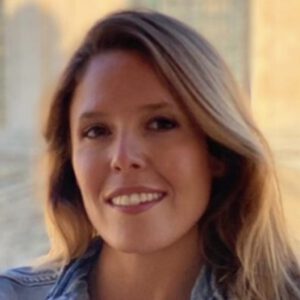
Eugenia Carrara is renowned for her expertise in transforming the food sector through sustainability policies and initiatives. With over a decade of experience her career includes guiding top political figures, leading international organizations, mentoring startups, and serving on NGO boards.She has advised the Mayor of Paris and the Minister of Ecology, contributing significantly to food systems transformation with major international players. Having recently finished a mid-career at MIT she is consulting firms willing to use AI for good in strategy for innovation for a sustainable world. Eugénia’s goal is to drive impactful changes in organizations committed to reach net-zero emissions, planetary health, and ultimately inclusive global wellbeing.

Dr. Eric Montgomery is a Cultural Anthropologist and Assistant Professor at Michigan State University where he serves as the Peace and Justice Adviser; he is also a long-time faculty member in the Center for Peace and Conflict Studies at Wayne State University where Professor Montgomery serves as the Saperstein-Lentz Senior Fellow in Peace Studies. Montgomery organizes “Peace conferences” that have recognized the likes of Desmond Tuti, Mary Robinson, Noam Chomsky, and more recently journalist Danny Fenster and ER doctor Craig Spencer. Dr. Montgomery is also a filmmaker and social justice activist with research and work spanning the gamut of anthropology, African religion, and human rights. Montgomery has taught over 25 different courses in Anthropology and Peace and Justice studies over the past 20 years at several universities. Montgomery is Co-Editor and Contributor to the new book “Spirit Service: Vodún and Vodou in the African Atlantic World “ (2022) from Indiana University Press. Currently Montgomery is working Director Indrani Pal-Chaudhuri on a plethora of film projects including topics such as: environmental justice and the right to breathe, racial justice and Black Lives Matter, slavery and memory, and piece “water as life” and the African global water spirit Mami Wata. He is the co-author of the book “Ethnography of a Vodu Shrine in Southern Togo” (BRILL, 2017), and editor and contributor to “Shackled Sentiments: Memory and Slavery in the African Diaspora” (Rowman and Littlefield, 2019). Eric is the director and producer of two films on Vodun cosmology and worldview called Chasing the Spirit (2012 Art Films) and African Herbsmen (2014) stemming from ethnographic research into “Voodoo” in Western Africa. Recent research is published in such journal as The Shaman, Visual Anthropology, American Ethnologist, J of Religion in Africa, J of Africa Religions, J of Religion in Society, Applied Anthropologist, Public Anthropologist new work on Anthropology, Peace, and Justice studies from Oxford Research Encyclopedia of Research. Eric Montgomery and Indrani were Finalists for their award-winning podcast Room “Sacred Realms” on the audio application Clubhouse. His new work includes a new book “Digital Storytelling and Social Justice” (with Beth Drexler and Indrani Pal-Chaudhuri) as well as a recent semi-finalist on the Michigan State Team for “X-Prize” biodiversity competition which involved extended research in Brazilian Amazon with the Puyanawa people.
Registration
- Organisation type: Science Summit
- email: info@sciencesummitnyc.org

